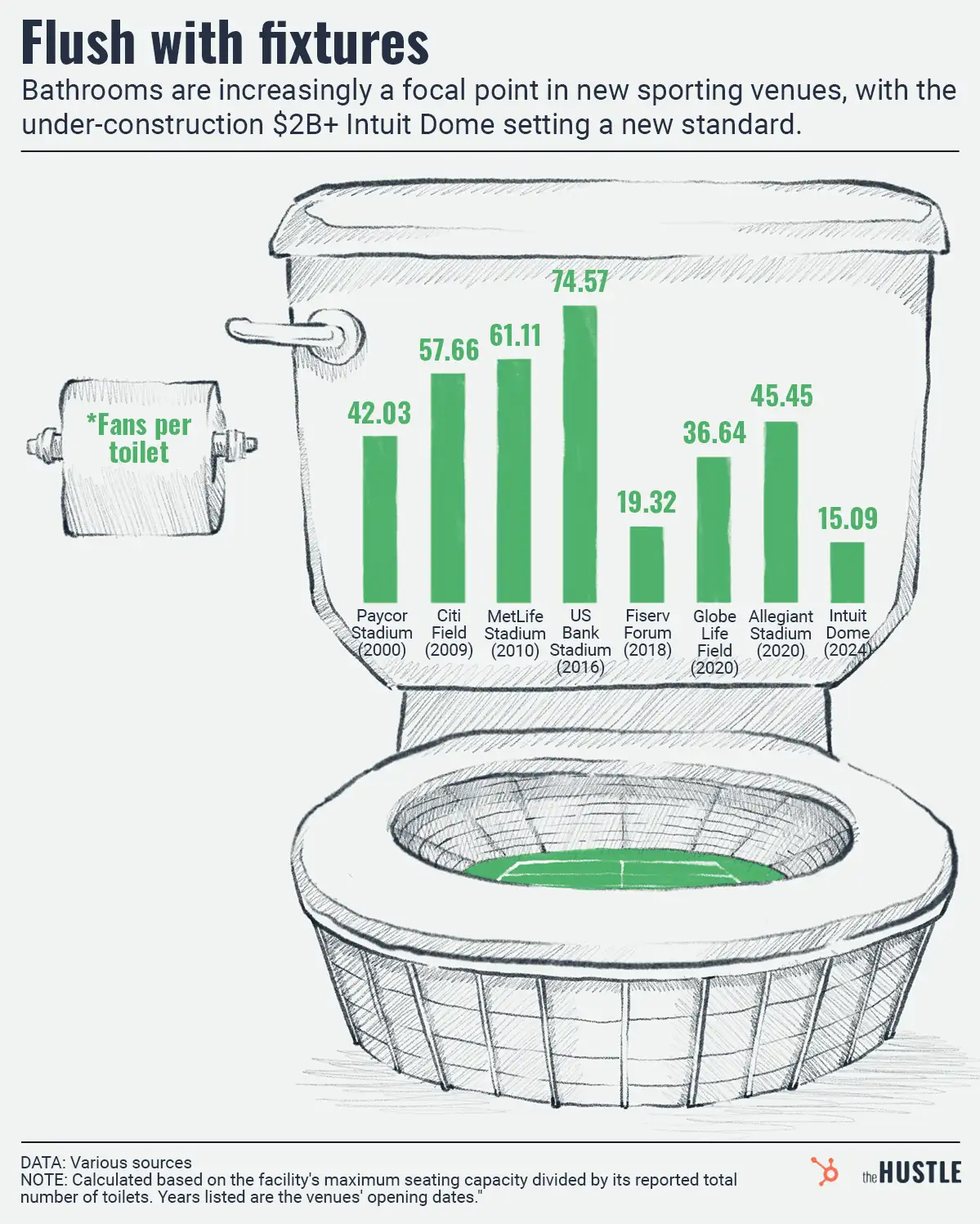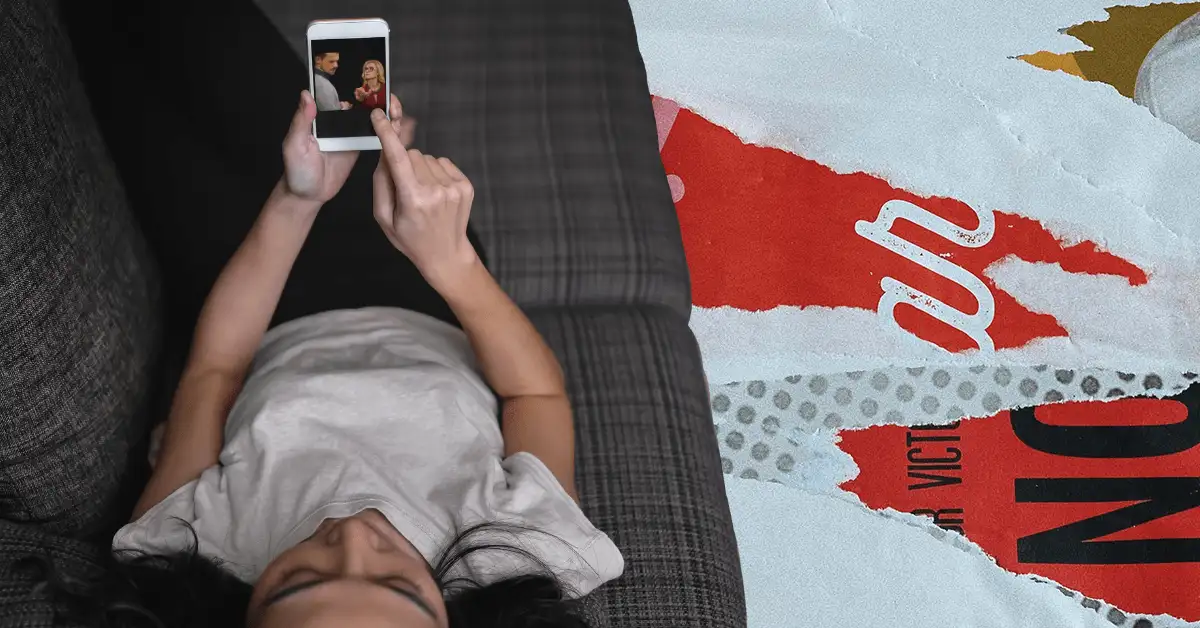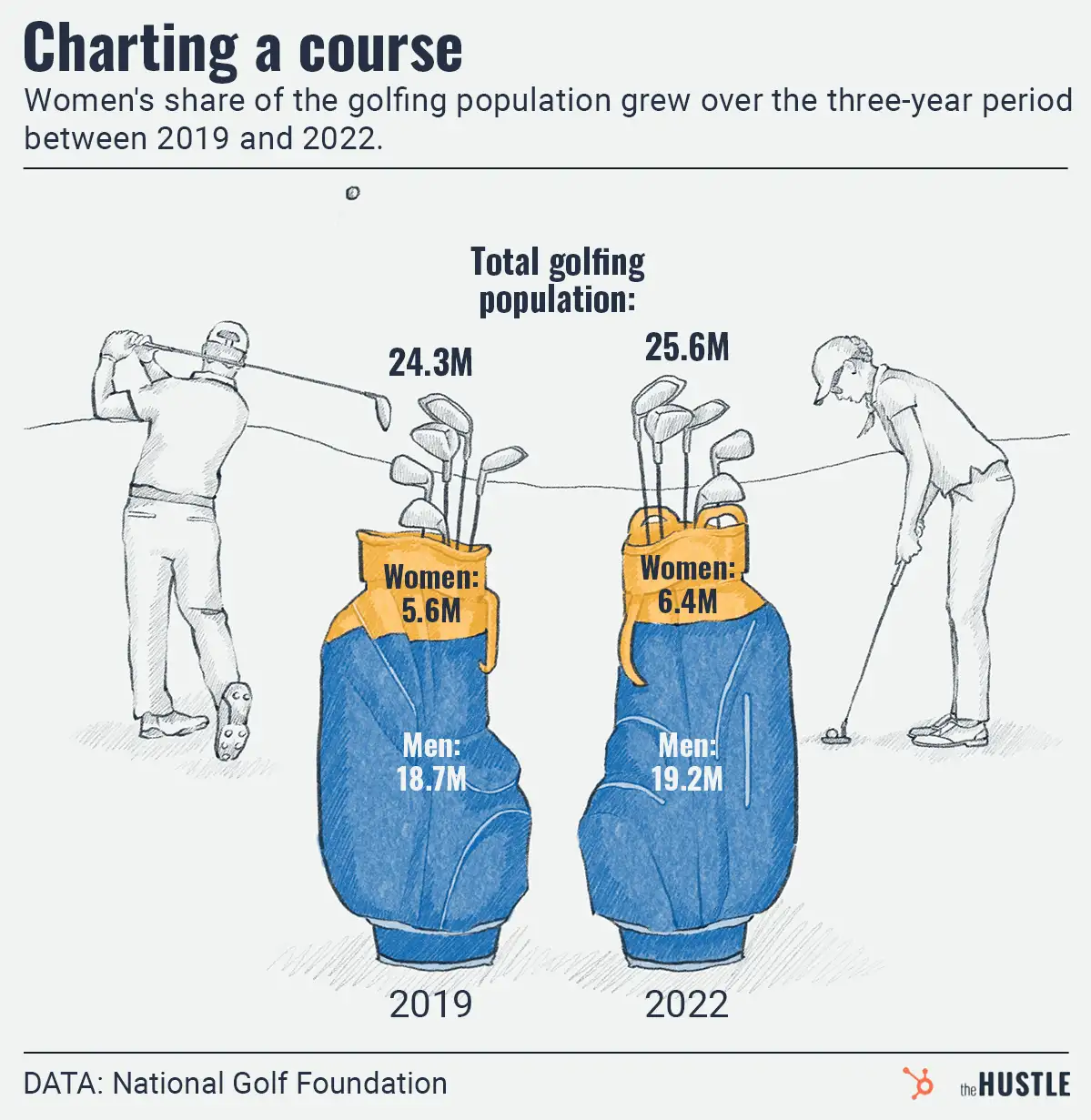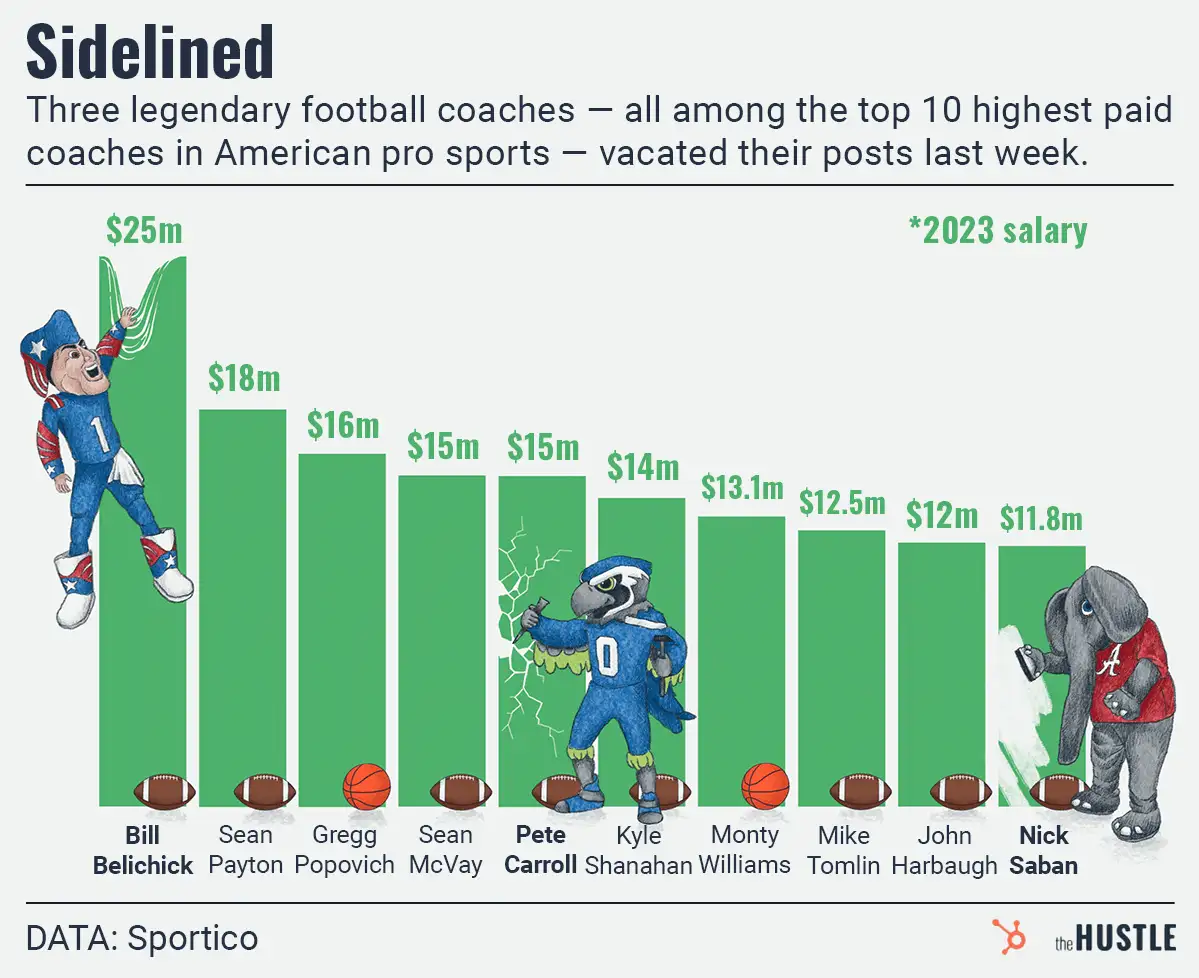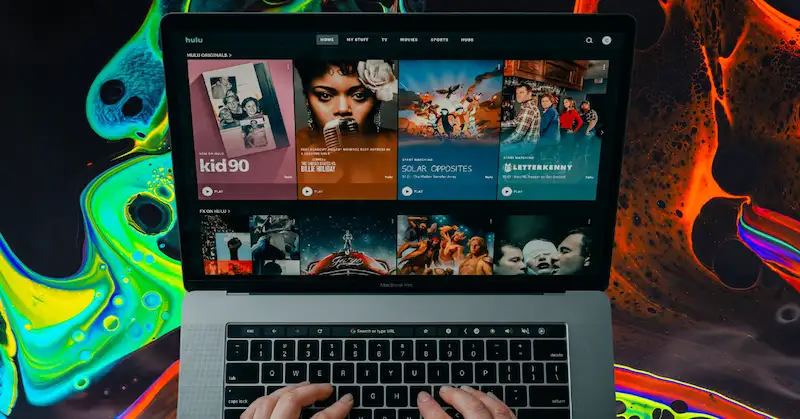It’s summer, which means your Instagram feed is proving that everyone is in Europe except for you.
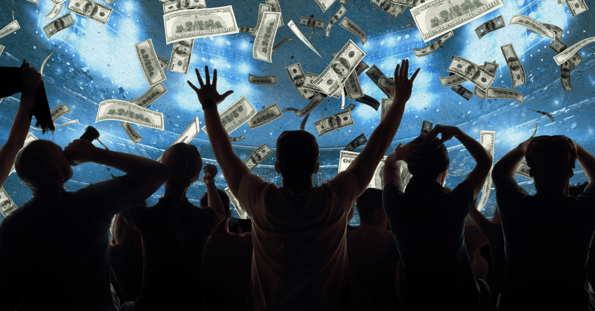
Between events like the Paris Summer Olympics, Taylor Swift’s Eras Tour, and Formula One, those trips are adding up.
The sports and music tourism economy is projected to hit $1.5T by 2032, according to research from Collinson International Ltd. via Bloomberg:
- Sports tourism alone, valued at $564.7B in 2023, is estimated to reach $1.33T in eight years.
- Music tourism, currently valued at $6.6B, is expected to more than double to $13.8B.
- Of the 8.5k+ people surveyed, 83% have flown to a sporting event, and 71% have either flown to a concert in the past three years or will in the next 12 months.
The trend makes sense given that the majority of Gen Zers and millennials would prefer to spend their money on experiences rather than save for retirement.
Golden tickets
When travelers visit for a concert or a game, they’re not just swiping their credit cards inside the stadium — ~80% stay one to three days after the event and 77% arrive one to two days before.
More than half of sports fans spend $500+ before they’ve even left the airport, with one-third of travelers ages 25-34 spending $1k+.
- The F1 Las Vegas Grand Prix in November 2023 brought $1.5B to the local economy, 50% more than the 2024 Super Bowl.
- The Paris Summer Olympics sent Airbnb bookings skyrocketing 133% YoY, and international tourists are estimated to spend ~$5k for hotels, airfare, and event tickets.
- Taylor Swift fans drove airfare sales to tour destinations up 45% YoY during concert dates, according to United Airlines. The tour led to larger booking spikes at Paris’ luxury hotels than the Olympics.
- Even youth sports tourism reportedly generated $39.7B in direct spending in 2021, with a total economic impact of $91.8B.
And fandom can have a major impact on local economies: Ryan Reynolds and Rob McElhenney’s acquisition of the Wrexham AFC football club led to a ~$1.3B boost for North Wales.
bc75.jpg)




